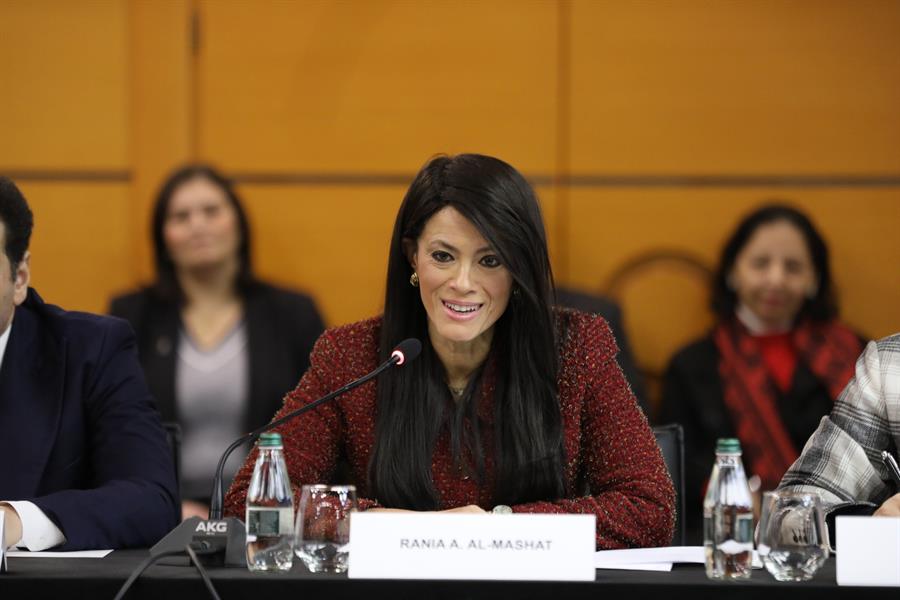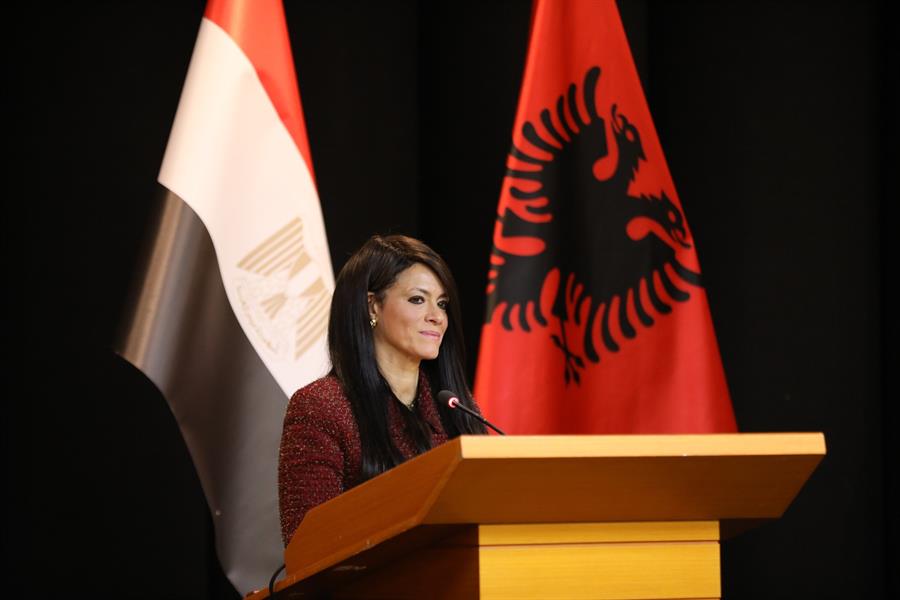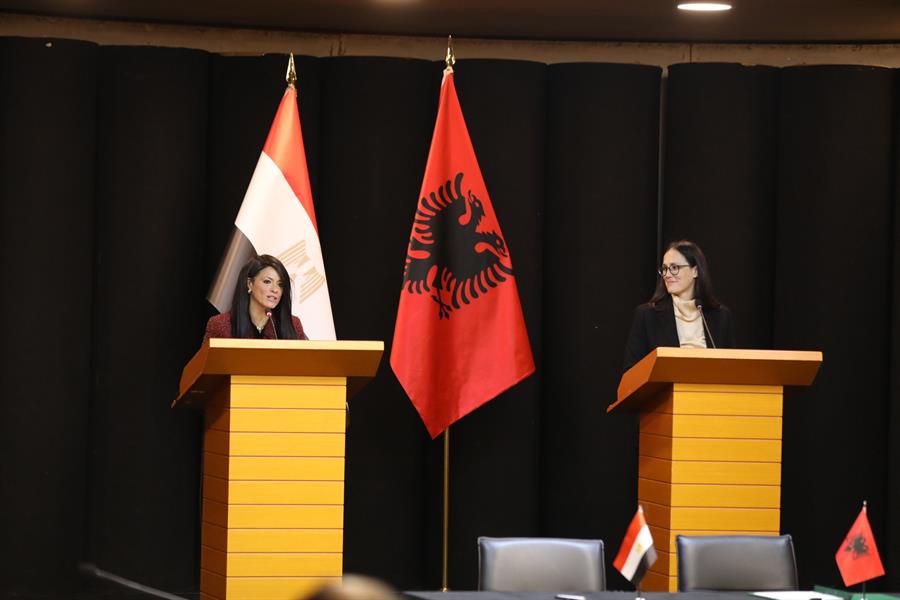Ministry of Planning & Economic Development runs a side event on the sidelines of the United Nations High-Level Political Forum

09 July 2021
Egypt's Vision 2030 aims to localize the sustainable development goals: Says Hala El-Said
The Ministry of Planning and Economic Development that is acting as a representative to the Arab Republic of Egypt at the United Nations High-Level Political Forum organized recently a side event on the sidelines of the Forum entitled “How can localization of SDGs contribute to leaving no one behind?”.
The event was organized in cooperation with the Permanent Missions of India, Brazil, and Kenya to the United Nations, and the United Nations Population Fund (Egypt Country Office), with the participation of a representative of the State of China as keynote speaker.
During her speech at the side event, Minister of Planning and Economic Development Dr. Hala El-Said said that the past year was exceptional in several aspects.
El-Said noted that the pandemic gave many lessons that policymakers and decision-makers benefited from.
El-Said indicated that this event is an opportunity for dialogue between relevant stakeholders to exchange experiences, best practices, and lessons learned to accelerate the implementation of the sustainable development goals.
El-Said added that it is important to identify the opportunities and challenges facing the implementation of the sustainable development goals at the local level, taking into account the diverse demographic, cultural, social, and economic conditions, to ensure the achievement of inclusive growth that reflects the true essence of the principle of "leaving no one behind."
Dr. Hala El-Said confirmed that the Egyptian citizen is the core of Egypt’s Vision 2030, noting that the vision is currently being updated to suit the developments imposed by the Covid-19 pandemic, and with international and regional geopolitical changes, in addition to ensuring consistency with Agenda 2030 and Africa Agenda 2063.
The updated version of Egypt's Vision 2030 also includes a set of guiding principles and enabling factors to respond to the development needs in the different governorates and reduce disparities in all its forms.
El-Said pointed out those evidence-based policies are the key to implementing sustainable development goals at the local level.
“For the first time in Egypt and the region, the Ministry of Planning and Economic Development, in partnership with the United Nations Population Fund, is launching 27 reports to localize the sustainable development goals in various Egyptian governorates,” El-Said explained.
El-Said added that these reports will be updated annually to document the progress and current status of the implementation of the sustainable development goals at the governorate level by measuring and updating the values of 32 indicators for 11 sustainable development goals.
On the reports of countries' voluntary national reviews; El-Said emphasized the importance of moving to a new stage for those reviews that help local governments share progress, experiences, and best practices regarding achieving the sustainable development goals, and also help local communities participate in the settlement of those goals in a comprehensive manner.
In her speech, Dr. Hala El-Said also referred to the presidential initiative “Decent Life", which was launched as part of the state's endeavor to continue efforts to provide the necessary investments to improve the quality of life for citizens and reduce poverty and unemployment rates.
The minister added that the launch of the second phase of the initiative comes within the framework of the "National Project for the Development of the Egyptian countryside".
After her speech, El-Said stressed the importance of a comprehensive partnership between all relevant stakeholders, including the private sector, civil society, and development partners, at the local and international levels, to search for the best ways to mitigate the impact of the pandemic.
The side event session was moderated by Dr. Maged Othman, CEO of Baseera, and the session was attended by Dr. Manal Awad, Governor of Damietta, Ambassador Tirumurti, Permanent Representative of the Republic of India to the United Nations, Mr. Wen Guhui, Mayor of the People’s Government of Guangzhou, China, and Mr. Louise Augusto Silva, Chief of Staff of the Governor of Parana State, Brazil, Mr. Saitoti Torum, Principal Secretary for Planning, National Treasury and Planning, Kenya, and Ms. Frederica Meijer, Country Representative in Egypt, UNFPA.









